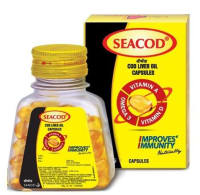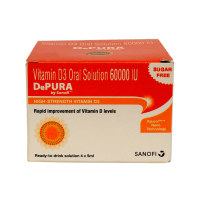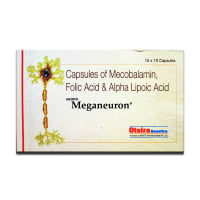
Interaction with alcohol is unknown. Please consult your doctor.

WEIGH RISKS VS BENEFITS
Angiotec 500mg Tablet ER may be unsafe to use during pregnancy.Animal studies have shown adverse effects on the foetus, however, there are limited human studies. The benefits from use in pregnant women may be acceptable despite the risk. Please consult your doctor.

CAUTION
Angiotec 500mg Tablet ER is probably unsafe to use during lactation. Limited human data suggest that the drug could represent a significant risk to the baby.

It is not known whether Angiotec 500mg Tablet ER alters the ability to drive. Do not drive if you experience any symptoms that affect your ability to concentrate and react.

CAUTION
Angiotec 500mg Tablet ER should be used with caution in patients with kidney disease. Dose adjustment of Angiotec 500mg Tablet ER may be needed. Please consult your doctor.Use of Angiotec 500mg Tablet ER is not recommended in patients with severe kidney disease.

CAUTION
Angiotec 500mg Tablet ER should be used with caution in patients with liver disease. Dose adjustment of Angiotec 500mg Tablet ER may be needed. Please consult your doctor.Use of Angiotec 500mg Tablet ER is not recommended in patients with moderate to severe liver disease.
Uses of Angiotec Tablet ER
Angiotec 500mg Tablet ER is used to prevent chest pain (Angina).
How to use Angiotec Tablet ER
Take this medicine in the dose and duration as advised by your doctor. Swallow it as a whole. Do not chew, crush or break it. Angiotec 500mg Tablet ER may be taken with or without food, but it is better to take it at a fixed time.Taking it with food may lessen the chance the Angiotec 500mg Tablet ER will upset the stomach.
How Angiotec Tablet ER works
Angiotec 500mg Tablet ER is an anti-anginal medication. It works by decreasing the oxygen requirement of the heart by relaxing heart muscle.
Common Nausea, Vomiting, Headache, Dizziness, Constipation, Weakness.
Expert advice for Angiotec Tablet ER
Angiotec prevents new attacks of angina but does not stop an acute attack. Does not affect heart rate, blood pressure at rest or during exercise. Improves HbA1c and blood sugar levels in diabetes patients. Avoid driving or using machinery if you feel dizzy after taking Angiotec. May produce changes in the ECG (QTc interval prolongation). It is recommended to get an ECG done 1 to 2 weeks after starting Angiotec. Notify your doctor if you are taking any other medications along with Angiotec
Q. What is Angiotec extended-release(ER) tablet?
Angiotec extended release (ER) means the pill is formulated in such a manner that the drug is released slowly over time and blood levels of a drug are more consistent. This has the advantage of taking fewer pills and also with a lesser gastrointestinal side effect.
Q. Do Angiotec and trimetazidine act in the same way?
No. Both Angiotec and trimetazidine are used for the treatment of angina but they work by a different mechanism. Angiotec works by blocking late sodium current channel during ischemia and thereby lessens the intracellular sodium and calcium overload. This relaxes heart muscles and decreases the oxygen requirement. This helps to prevent angina. Trimetazidine works by improves glucose utilisation of heart cells through inhibition of fatty acid metabolism.
Q. What is the effect of Angiotec in patients with coronary artery disease?
The researcher has studied Angiotec in patients with non-ST-elevation coronary artery disease. It did not reduce the risk of death or recurrent heart attacks in patients, but it improves angina symptoms. It is approved for use in angina.
Q. Can I use rivaroxaban with Angiotec?
Yes. Combining these medications can increase the blood levels of rivaroxaban and increase the risk of serious bleeding complications. You may need a dose adjustment. If you have kidney disease, you should inform your doctor before using rivaroxaban together with Angiotec.
Q. Can I take Angiotec for type 2 diabetes?
No. Angiotec is not approved for treatment of type 2 diabetes. Study have demonstrated its ability to decrease HbA1c (glycosylated haemoglobin) in patients with or without diabetes. This property may be useful in the treatment of patients having diabetes mellitus and angina.
Q. Can I take Angiotec with quetiapine?
No. Using Quetiapine with Ranolazine can increase the risk of an irregular heart rhythm that may be serious and potentially life-threatening.
Q. Is Angiotec good for the heart?
Angiotec is used in a disease of the heart known as angina. It has been shown to improve exercise-induced chest pain and severity of angina.
Q. Are any alternatives to Angiotec?
Yes, there are alternative to Angiotec e.g.Ivabradine, nicorandil and trimetazidine for effective control of anginal symptoms.
Q. Can I take Angiotec with atorvastatin?
Yes. Angiotec may significantly increase the blood levels of atorvastatin. This can increase the risk of side effects such as liver damage and the breakdown of skeletal muscle tissue. It can be used with atorvastatin but with dose limitation (atorvastatin) and appropriate clinical monitoring. In some cases, this can cause kidney damage and even death.
Q. Can I use Angiotec for the treatment of atrial fibrillation?
No. Angiotec is not approved for treatment of atrial fibrillation (AF). The researcher has demonstrated, its usefulness in patients with Atrial Fibrillation(AF) and in nonsustained ventricular tachycardia (VT) in the experimental model.
Q. Is Angiotec a beta blocker?
No, Angiotec is not a beta blocker. It is used in the treatment of angina.
Q. Can I take Angiotec with haloperidol?
No. Angiotec should not be used with haloperidol. It may increase the risk of an irregular heart rhythm that may be serious and potentially life-threatening.
Q. Is Angiotec effective in arrhythmia?
No. Angiotec is not approved for use in any of arrhythmia. The researcher has demonstrated, its usefulness in patients with Atrial Fibrillation(AF) and in nonsustained ventricular tachycardia (VT) in the experimental model.
Q. What are the contraindications to Angiotec?
Angiotec is contraindicated in patients with liver damage (cirrhosis). It should not be given with medicine like ketoconazole, itraconazole, clarithromycin, nefazodone, nelfinavir, ritonavir, indinavir, saquinavir, carbamazepine, phenobarbital, phenytoin, rifampin.
Q. Can I use Angiotec for the treatment of diastolic heart failure?
No. Angiotec is not used in the treatment of diastolic heart failure. It is used in the treatment of angina.


 Angiotec 500mg Tablet ER
Angiotec 500mg Tablet ER  Bookmark
Bookmark



















